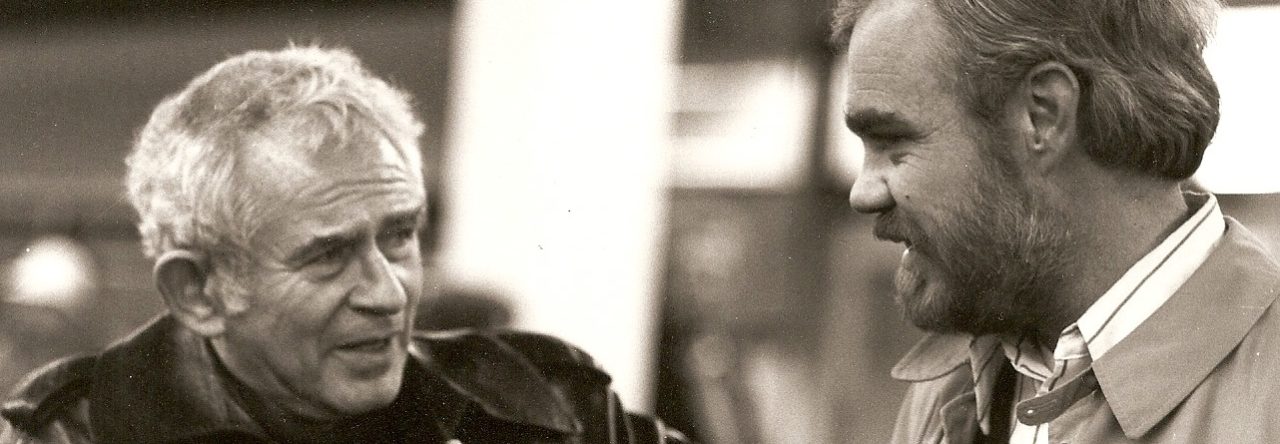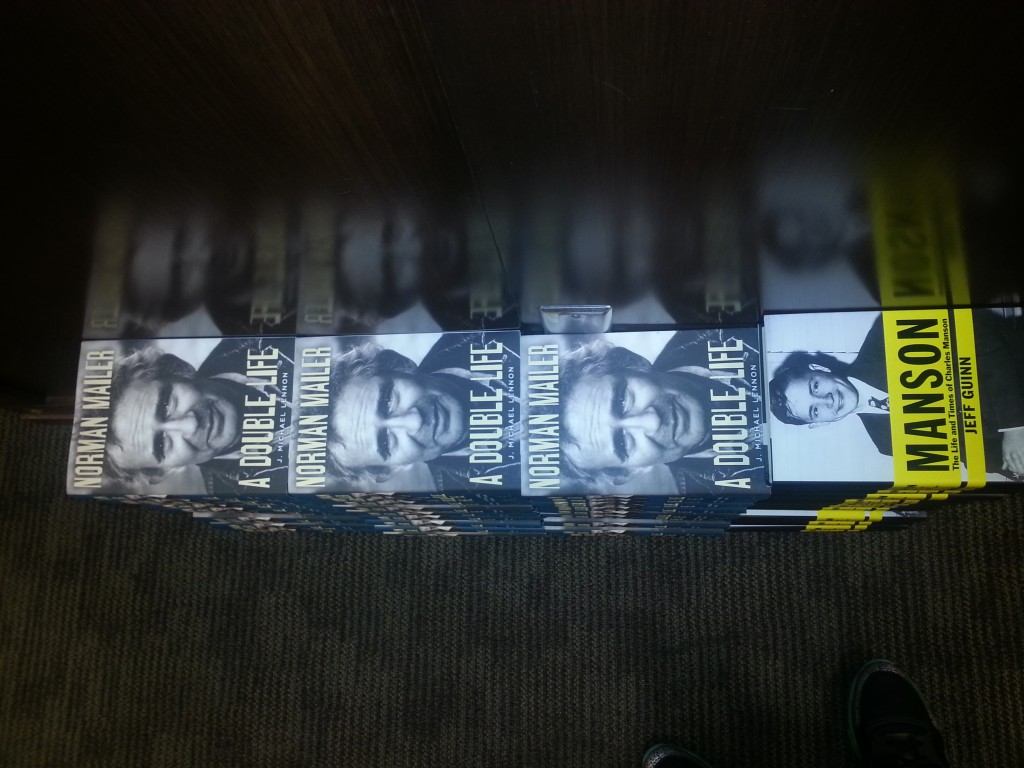World-famous at age 25 for his gritty, in-the-trenches, war-is-hell novel, The Naked and the Dead, Norman Mailer spent the last half of the 20th Century giving everybody something to talk about. A prolific writer of fact and fiction (and some new forms he invented), Mailer inserted himself into the history, politics and literature of his time. J. Michael Lennon’s new, authorized biography, Norman Mailer, A Double Life, gives us a front-row seat for the non-stop action of a man who’s credo was, “Itch, you bastards, I hope I make you uncomfortable to the death.”
Category: Biography Page 8 of 10
In the annals of American literature, has there ever been a major writer more easily distracted than Norman Mailer? The author of such classic books as “The Naked and the Dead” and “The Executioner’s Song” had a penchant for tangents that took him, over the course of his 84 years, far afield of his chosen profession. “Mailer loved to drop everything, mobilize his energies, and launch in a new direction,” writes J. Michael Lennon in Norman Mailer: A Double Life, the first biography of the author to appear since his death in 2007.
Professor J. Michael Lennon talks with Jim about the book he published “Norman Mailer: A Double Life”. The book is an autobiography of American Novelist and Journalist Norman Mailer.
This week, we’re taking a look at two new biographies of literary lions: Norman Mailer and Philip Roth.
Last week, at a book party for J. Michael Lennon’s Norman Mailer: A Double Life, a 900-page authorized biography of the author, who died in 2007, a good deal of literate septuagenarians gathered at Mailer’s old home near Pineapple Street in Brooklyn. It was once on the market for $2.5 million but has remained in the Mailer family, just as the old patriarch would have wanted it.
Lennon’s central thesis is that Mailer, who died in 2007 at 84, long struggled with dual, and dueling, aspects of his personality: observer and activist, rebel and establishment figure, philanderer and family man, saint and psychopath, rationalist and transcendentalist.
It could be said that Norman Mailer was a man and a writer halfway between fame and infamy and yet with little in the way of middle ground. He was, in varying combinations, a world-class drinker, feuder, provocateur, self-mythologizer and anti-feminist. He was a war protester, a mayoral candidate, a co-founder of The Village Voice, as well as a wife stabber, a serial husband (of six wives), and a father (of nine). He was a boxer, an actor, a filmmaker, a poet and a playwright. He was also a journalist and a novelist of enormous and singular narrative inventiveness and thrust, a two-time Pulitzer Prize winner, and one of the least boring and most tireless and tiresome public figures of the last half of the 20th century.
“Detailed and anecdotal without being gossipy (a yarn concerning a nicotine-addicted cat notwithstanding) and a must-read for students and admirers of Mailer’s work.”

